In this edition of Frontlines we visit the building industry. Gavin Matthews spoke to John Aitken who runs a company which ensures that construction materials meet fire-safety standards.
Solas: Tell us a little about your job? What are your roles and responsibilities?
JA: Well my job title is “Senior Consultant”, and I’ve been working in structural and passive fire protection for twenty-five years. I’m the managing director of a small business working in the field. That means that alongside the work of structural and passive fire protection, I’m responsible for people management, the direction of the company and all major decisions. Our work involves enabling our clients to be compliant with fire safety standards. Most of them are builders, and we go out onto their construction sites (often huge projects), and make sure that they are building within fire-safety specifications. We enforce those specifications and write reports on what we find.
Solas: So how much of your time do you spend in the office, and how much on site? At least, I suppose in normal times.
JA: I’m usually in the office for about a quarter of the average week, I’d estimate. Unusually, construction has been largely unaffected by Covid, as most of it has been classified as “essential” and so has continued operating. Scottish sites were shut for 12 or so weeks, but the English were only paused for 2-3 weeks, and most of our work is there.
Solas: And do you have sign-off buildings as being fire safety compliant?
JA: Yes, though ‘sign-off’ isn’t a phrase I like. We are often not responsible for the regulation of the whole building. Most of the projects we consult on have £10m + budgets, some ten times that, which can take a couple of years to build. The architects and fire engineers have to sign off the original plans, our role is to work with them on some of the detail in practice. So if corners are being cut, or if the agreed standards are being compromised, we can deal with that.
Solas: So, management, business, travel, practical work, inspections, reports.. of all that variety what do like the most?
JA: It’s actually the variety! I really enjoy my work, and I feel blessed to be able to say that. I love meeting all kinds of people and working with them on projects, and before I had kids I used to love all the travelling too. I’ve seen some amazing places around the world through work. In fact, I was offered some very well-paying jobs in Dubai. My wife and I realised that the lifestyle out there would have made us incredibly wealthy, but it didn’t reflect our values. The ex-pat community we met there seemed to value money and parties – we wouldn’t have fitted in. It didn’t seem like a great place to raise kids either to be honest. What was awkward was that my boss told me that Dubai was going to be the world hub for our industry and that he wanted me there. When I said it wasn’t right for me or my family, this was a pivotal point in my career. The company eventually made my role in Scotland redundant, and when I chose not to move to England, that’s when the best challenge of all came, as I was forced into starting my own business out of survival.
Solas: So, how does your faith in Christ help you to face some of the challenges you encounter in the workplace?
JA: Well running a business in a fluctuating economy, managing the technical workload, keeping the company profitable, paperwork… all of these are challenges and there are staff who are dependent on me to provide work for them. The way I can manage the stresses of running a business is by being grounded in God and having faith in Him. The time I spend in the morning with Him is just so important; that’s where I find his peace, and commit the day ahead, with all its challenges, to Him. I sometimes say to the Lord in the morning, “I can’t do this without you, please give me wisdom and insight.” Yesterday I got called to a meeting with four key clients, who wanted to renegotiate our whole business arrangement. Not knowing what they wanted, I was able to pray before going into that meeting, “God, please help me to be calm, confident and insightful”. And God gives you what you ask for when you need it! When you walk with God, you can have amazing confidence that He will supply everything you need at the right time, but you do need to remember to ask Him! Confessing my sins to God, and receiving His cleansing is critical for me too, I need to be close to Him. When I’ve felt fear or worry creeping in, I’ve stopped and quietly prayed to God to find His peace. Sometimes I’ve prayed and fasted, when business has been especially challenging, and I’ve needed God’s help.
Another challenge has been times when I have been overworked. Running a company can be so overwhelming. There’s the whole question of balance in life to consider too. How much time do I give to God and my family? Work can consume all my time, up to 80 hours a week regularly – and that is a real pressure for me. One thing I am totally committed to though is my prayer-time before work. I read (or listen in the car) to the Bible and pray every morning before work, and I can’t give that up. That’s where God meets and sustains me through the busiest times. I am involved in church leadership, but I honestly wish I had more time to invest in serving God and His people, which running a business currently seems to limit me in doing.
Solas: Do you think you approach work differently because you are a Christian, than you would otherwise?
JA: As I’ve said, I consciously rely on God in business. Then there are ethical temptations too. I know of all kinds of tax-dodges and unethical practices that go on in business, which as I Christian I can’t follow. Then there are standards of ethics around how I relate to my employees, and my faith informs that too. I’m aware that as a Christian I need to have the highest standards of integrity.
Solas: So do the people you work with know you are a Christian? How do they react when they find out?
JA: Certainly all my employees do, as do many of the associates we work with. Not all my clients do, you don’t often get the opportunity to speak to them about anything other than work. But everyone who I work with and have any relationship with definitely knows that I am a Christian.
Solas: Have you ever had opportunities to share anything of your faith with people you’ve met through work? Did they come up randomly or was it something you set out to achieve intentionally?
JA: Yes and both! I was working on a bridge in East Linton, which was being blasted and re-painted and I got to know some of the people there. My job can sometimes involve time in the site-office, waiting for the work to be ready for inspection. One of the guys was a nominal Catholic by background but not really by conviction. He was really interested in my faith and asked me all kinds of questions about it. Another young painter came to me because he was interested in my line of work, but then asked about my life. I was able to tell him about my faith in Christ. He again had been brought up as a Catholic but wasn’t practicing and had no real faith. I was able to go much deeper with him in explaining the gospel. He was intrigued and surprisingly open and respectful.
I have a way in for sharing my testimony too, which has been useful. I don’t drink alcohol and when I’m out with colleagues and clients they sometimes ask why. The reason isn’t legalistic; but it’s because before I was a Christian I drank far too much, far too often. That was something that God delivered me from after I had come to faith. That gives me opportunities to talk about many of the ways in which Jesus has changed my life of which that is only one.
The best conversation I’ve been able to have recently was due to Covid. I met someone who was really frightened of the virus. I wasn’t frightened of it, and I offered to try and help him deal with his paralysing fear. I told him about the way in which my faith sustains me through the pandemic. I was able to explain that I wasn’t panicking because even if I died, I knew where I was going. Interestingly, this chap said that in lockdown his thoughts had been increasingly turning towards God, and he asked me to pray for him. The answer to not having fear in life or in death is to know Christ, and he wanted to know all about this. I have to say, I didn’t force this conversation, I asked his permission, saying, “would you like me to tell you about how my faith sustains me” and he really wanted to know. I’ve spoken to him again since, and I believe he’s attending an online church and has faith now. His fears massively subsided too. I didn’t really set out to have that conversation, but it was one of the best I’ve ever had!
Solas: Have you had any negative responses to your faith?
JA: Not in any depth! A common response is that faith is OK for you, but it’s not for me. People usually want to change the subject if it’s not something they are happy to talk about. No-one has been aggressive at work; my friends are much ruder to me than people are at work! Usually the people I get to know at work are professionals and they want to retain professional relationships. You can tell by the body –language whether they are just being polite or whether they are actually interested or not!
Solas: You clearly love talking about Jesus. What is it that makes you want to share him with others?
JA: I’m a natural evangelist! If I was to give up my job, I would love to become an evangelist. I long to see people converted to Christ. When I stop and think, or when I pray – my heart is broken for this sad world. The fact that something like 98% of the population in the UK are missing out on a blessed relationship with God is so sad. I long to be able to help people see what I’ve got, to help people to have that loving relationship with God. The things the Holy Spirit does for me on a daily basis, the promise of where I will spend eternity, what The Lord Jesus has done for me, are all things that I long for others to have too! In fact my heart aches for colleagues, family and friends who don’t have this. Christ in me creates a burden for others – whoever they are.
Solas: So what advice would you give a young Christian starting out on a life of business in your field who wants to be faithful to Christ there?
JA: Give the first-fruits of your day to The Lord, begin the day with Him. Have daily devotion and commitment to Him. Without that, I wouldn’t get through the day – and I don’t think you will either! Then remain faithful to The Lord in your business and personal life, never stop following him. Also, be yourself as a Christian, don’t try and pretend to be anybody you are not, and don’t worry so much about what others think of you. Don’t deny the Lord, but look out for opportunities to speak for Him. If you share Christ – even with your boss – The Lord will look after you, even if there are consequences. Be confident in the Lord, that whatever happens in life or in business – He’s got your back! Seek first the Kingdom of God – and everything else will be given to you. You spend at least a third of your life in your career, so make sure you take The Lord to work with you! You can’t live as a Christian but leave Jesus at the office door. Instead represent him at work, and pray that he shines through you there. Be wise, be respectful of others, don’t be rude or stupid – but never miss an opportunity.
Solas: Thanks John – that’s challenging!

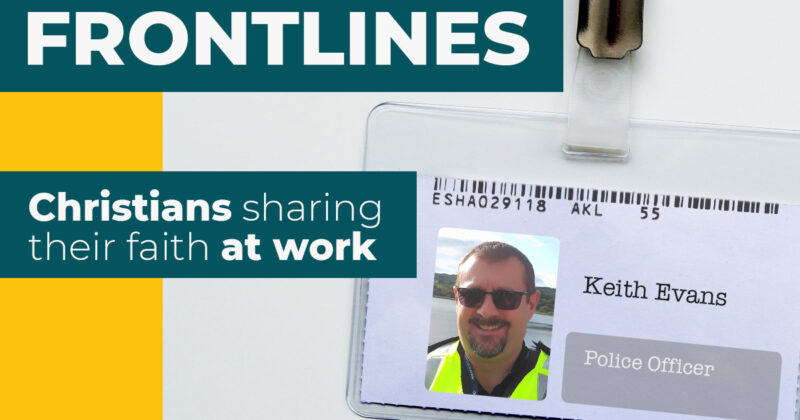
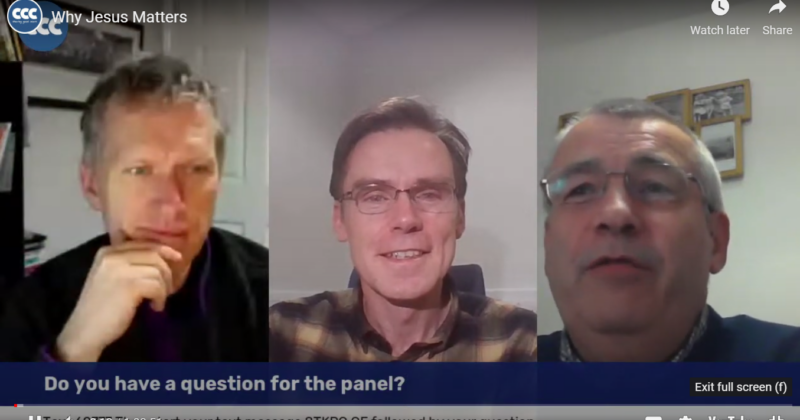
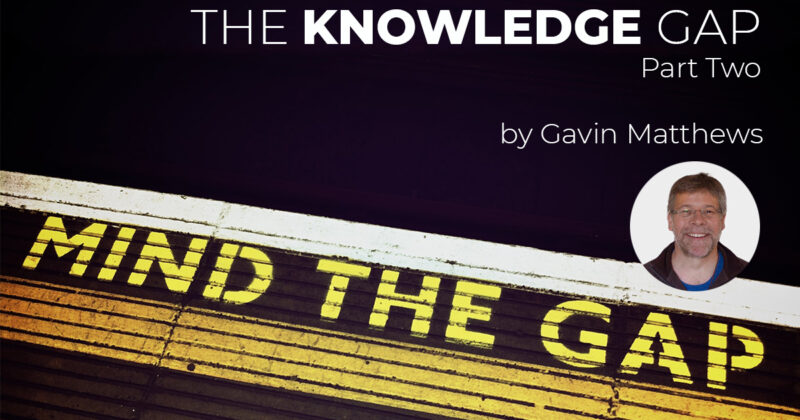

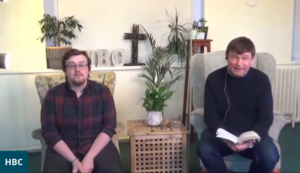
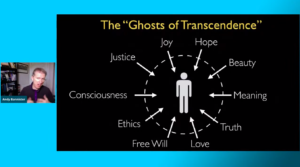

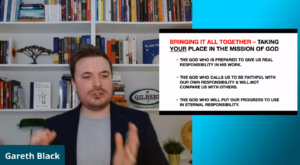
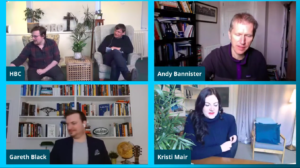 The Solas team loved working with the guys from Hereford! Kristi Mair said, “It was a delight to be involved in the Confident Christianity conference in Hereford. The host church did an excellent job of facilitating the day, and we were thrilled to be able to engage with such thoughtful questions. I came away from the day giving great thanks to the Lord. At a time when in person events are not possible, this conference reminded me of the distinct privilege it is to be able to encourage each other through online training days such as these.”
The Solas team loved working with the guys from Hereford! Kristi Mair said, “It was a delight to be involved in the Confident Christianity conference in Hereford. The host church did an excellent job of facilitating the day, and we were thrilled to be able to engage with such thoughtful questions. I came away from the day giving great thanks to the Lord. At a time when in person events are not possible, this conference reminded me of the distinct privilege it is to be able to encourage each other through online training days such as these.”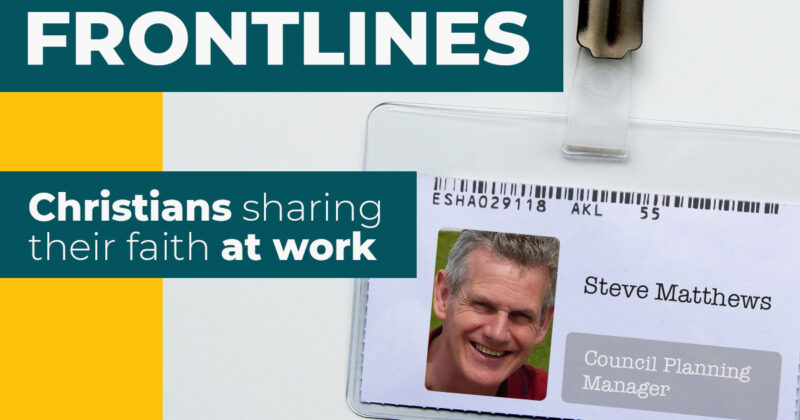

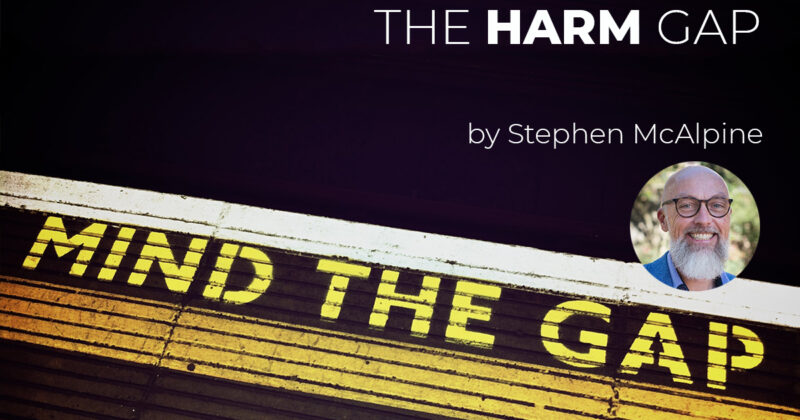
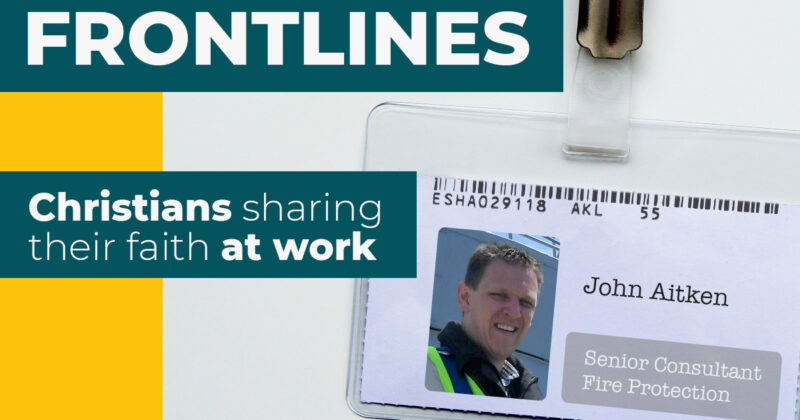
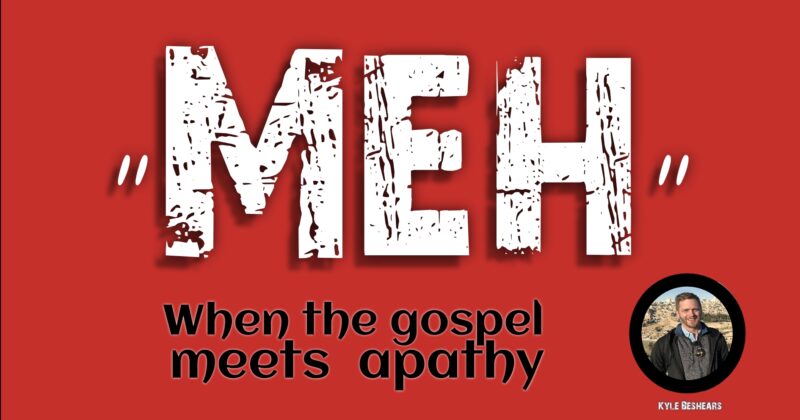
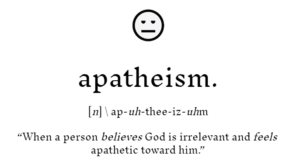 Think about it. Atheists are usually very interested in the topic of God. They’ve researched the topic to shape their thoughts and are more than happy to talk about their disbelief over coffee. So, when you ask the question, “What are your thoughts on faith?” they reply, “How much time do you have?” And the door to gospel conversation swings wide open.
Think about it. Atheists are usually very interested in the topic of God. They’ve researched the topic to shape their thoughts and are more than happy to talk about their disbelief over coffee. So, when you ask the question, “What are your thoughts on faith?” they reply, “How much time do you have?” And the door to gospel conversation swings wide open. Kyle Beshears is teaching pastor at Mars Hill Church in Mobile, Alabama. He holds a Master of Theology from The Southern Baptist Theological Seminary where he is currently a PhD candidate.. He’s the author of
Kyle Beshears is teaching pastor at Mars Hill Church in Mobile, Alabama. He holds a Master of Theology from The Southern Baptist Theological Seminary where he is currently a PhD candidate.. He’s the author of